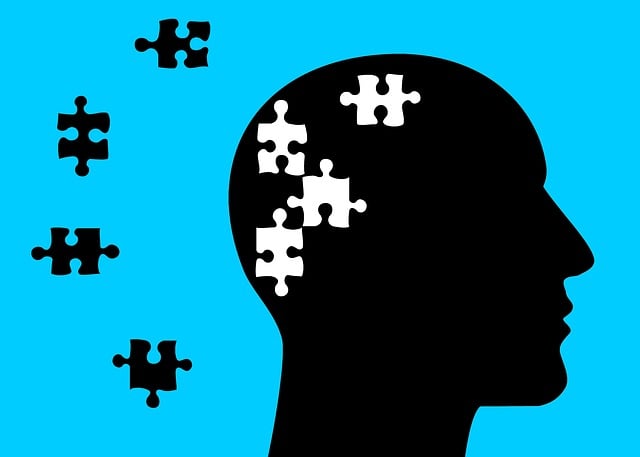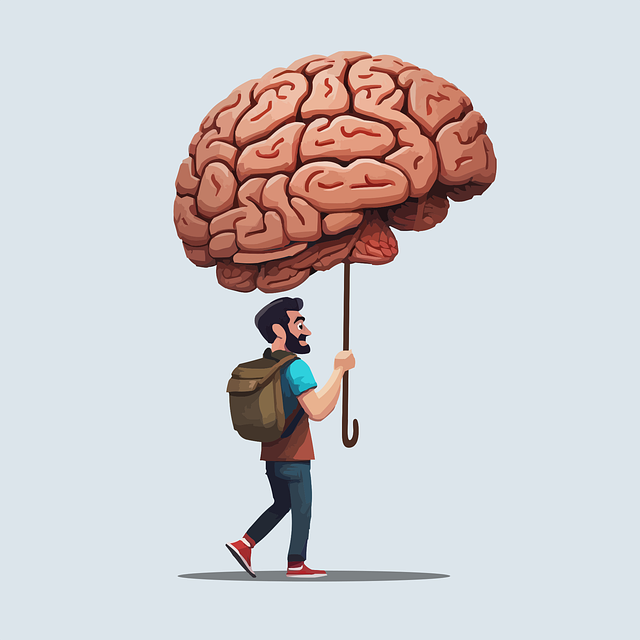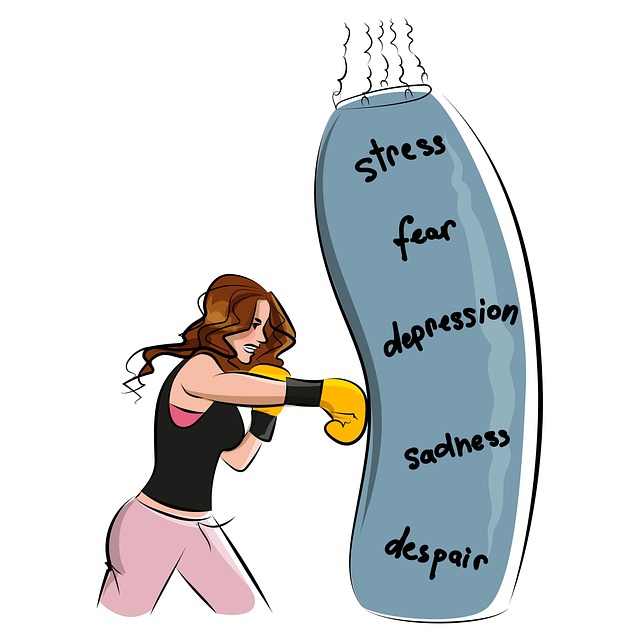Risk management in mental health care for elders with Attention Deficit Disorder (ADD) or ADHD is crucial for patient safety and well-being. It involves a nuanced approach, including compassion cultivation, structured therapy sessions, and community outreach programs to mitigate risks. Tailored strategies like social skills training, confidence-boosting techniques, and regular risk assessments enhance therapeutic outcomes. Continuous evaluation and peer input refine therapists' skills, ensuring optimal care for vulnerable populations during evaluations and therapy.
Mental health professionals must navigate complex risks in their practice, especially when treating elderly patients with Attention Deficit Hyperactivity Disorder (ADD/ADHD). This article guides you through comprehensive risk management planning. We explore essential aspects such as understanding risk dynamics in mental health, identifying ADD/ADHD-specific risks, and developing tailored strategies for therapy sessions.
Learn effective mitigation techniques, continuous evaluation methods, and the vital role of regular evaluations to ensure optimal patient outcomes, particularly in the context of elderly therapy for ADD-ADHD.
- Understanding Risk Management in Mental Health Practice
- Identifying and Assessing Risks Specific to Elderly Patients with ADD/ADHD
- Developing a Comprehensive Risk Management Plan for Therapy Sessions
- Implementing Strategies to Mitigate and Monitor Risks
- Continuous Evaluation and Improvement for Effective Risk Management
Understanding Risk Management in Mental Health Practice

In mental health practice, risk management is a crucial aspect that involves identifying, assessing, and mitigating potential risks to ensure patient safety and well-being. It’s an ongoing process that requires professionals to navigate complex ethical, legal, and emotional landscapes. Mental health practitioners, particularly those working with therapy for elders or individuals with ADD-ADHD, must be adept at managing various risks that can arise during evaluations and treatment sessions. This includes balancing the need for accurate diagnoses with potential harm from missteps, maintaining confidentiality while adhering to legal reporting requirements, and recognizing signs of burnout—a significant concern among healthcare providers.
Effective risk management in mental health involves adopting strategies such as compassion cultivation practices, which promote emotional well-being promotion techniques both for patients and practitioners. By fostering a culture of mindfulness and self-care, mental health professionals can better manage stress, prevent burnout, and ultimately provide higher quality care. It’s about creating a safe, supportive environment that encourages open communication and allows for flexible, evidence-based approaches to address the unique needs of each client.
Identifying and Assessing Risks Specific to Elderly Patients with ADD/ADHD

Identifying risks among elderly patients with ADD/ADHD requires a nuanced approach tailored to their unique needs and challenges. Mental health professionals must go beyond general risk assessments, delving into the specific cognitive and behavioral aspects of ADHD that can impact an older adult’s life. This includes evaluating potential risks related to medication management, as elderly individuals may be more susceptible to side effects or interactions. Moreover, assessing the patient’s living environment, social connections, and access to support services is essential. Many elders with ADD/ADHD face challenges in maintaining daily routines and might require additional help to prevent isolation and ensure safety at home.
Therapy for elders with ADD-ADHD should focus on personalized interventions aimed at improving self-esteem, enhancing coping strategies, and reducing the mental illness stigma often associated with aging and attention disorders. Mental health professionals can play a pivotal role in fostering resilience by providing crisis intervention guidance tailored to the individual’s history and current circumstances. Regular evaluations enable practitioners to track progress, adjust treatment plans, and ensure the elderly patient receives the necessary support throughout their therapeutic journey.
Developing a Comprehensive Risk Management Plan for Therapy Sessions

In developing a comprehensive risk management plan for therapy sessions, mental health professionals must tailor strategies to diverse client needs. For elder clients with ADD/ADHD, this involves implementing Mind Over Matter Principles to enhance focus and engagement during sessions. A robust plan should incorporate structured scheduling, clear communication, and the use of visual aids or technology to cater to unique cognitive styles. Regular assessments are crucial to gauge progress and adjust interventions accordingly, ensuring a safe and supportive environment for all therapy types.
Community outreach program implementation is another key aspect that can mitigate risks in mental health practice. By integrating these programs, therapists not only foster self-esteem improvement but also create opportunities for clients to apply learned coping mechanisms in real-world settings. Such approaches collectively contribute to a comprehensive risk management strategy, aiming to protect both client and therapist while optimizing therapeutic outcomes, particularly during evaluations for ADD/ADHD.
Implementing Strategies to Mitigate and Monitor Risks

Implementing effective risk management strategies is paramount for mental health professionals to ensure safe and successful treatment outcomes, especially when working with vulnerable populations like elders. One key approach involves integrating various mitigating measures tailored to individual client needs. For instance, therapy sessions can incorporate social skills training to enhance interpersonal interactions and reduce potential risks related to social isolation. Additionally, confidence-boosting techniques can empower clients to navigate challenging situations more effectively. Regular risk assessments are essential tools to identify and address emerging concerns promptly.
Monitoring risks is an ongoing process that requires a multifaceted approach. Mental health professionals should regularly review client progress, noting any changes in behavior or circumstances. This proactive monitoring enables the timely implementation of appropriate interventions. For elders with co-morbidities like ADD/ADHD, specialized evaluations can uncover unique challenges and guide personalized strategies to manage symptoms effectively while minimizing potential risks during therapy sessions.
Continuous Evaluation and Improvement for Effective Risk Management

In the dynamic field of mental health care, continuous evaluation and improvement are vital to effective risk management planning. Mental health professionals must stay abreast of best practices in risk assessment for elders, including those with co-occurring conditions like ADD/ADHD. Regularly conducting thorough evaluations allows practitioners to identify potential risks within individual cases and implement tailored interventions promptly. This proactive approach ensures the safety and well-being of clients, particularly vulnerable populations such as elderly individuals.
Through ongoing self-reflection and peer review, therapists can refine their risk assessment skills and adapt their therapeutic approaches accordingly. Incorporating feedback from both clients and colleagues fosters a culture of continuous learning and quality improvement within practices. By staying agile and responsive to emerging challenges, mental health professionals can deliver exceptional care that enhances mental health awareness and promotes positive outcomes for all clients, regardless of age or diagnosed conditions.
Mental health professionals play a pivotal role in enhancing the well-being of elderly patients with ADD/ADHD, but this comes with unique challenges. By understanding and proactively managing risks specific to this demographic during therapy sessions, practitioners can create a safe and supportive environment. Implementing comprehensive risk management plans, regularly evaluating, and adopting strategies for continuous improvement are essential practices to ensure positive outcomes. Through these measures, therapists can effectively navigate the complexities of working with elderly patients with ADD/ADHD, facilitating successful therapy for enhanced mental health and quality of life.














